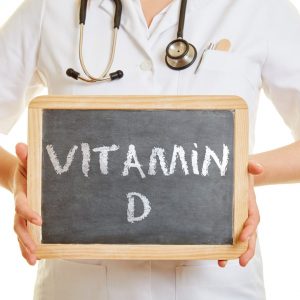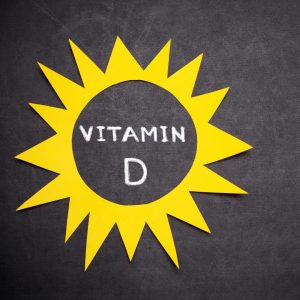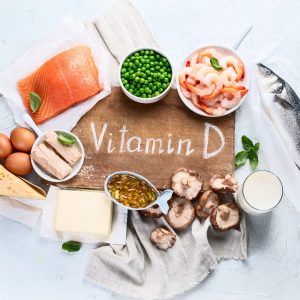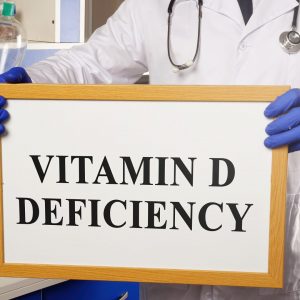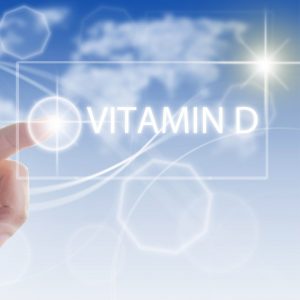History of Menopause and Its Treatments
By the year 2030, approximately 1.2 billion women will be menopausal or postmenopausal worldwide. Greater than 85% of these women will experience disabling symptoms. As recent as the 1970s, “Menopause was defined as a psychological crisis that would cause disease under certain conditions. The most important condition was social, a woman’s adherence to departure from…
Read MoreVitamin D Toxicity: Can It Be Defined?
Recently, patients have presented to the office being told by their primary care physicians to reduce their vitamin D intake due to concern of vitamin D toxicity, despite their levels falling into the standard reference range, between 55 and 80 ng/mL. High dose vitamin D therapy has been used historically and in modern times to…
Read MoreEffectiveness of Covid Bivalent Vaccine
Previous blogs reviewed and summarized COVID vaccination trends via UK and New South Wales (NSW) COVID Surveillance Reports. Published almost a year apart, the trends of each are in agreement. The findings demonstrated an increase in hospital admissions, ICU admissions, and deaths with increasing numbers of vaccination doses. These blogs can be accessed here: “UK…
Read MoreHow Much Vitamin D Should You Take?
The last blog, “Vit D Reference Ranges and How They Were Determined,” reviewed how “normal” ranges of vitamin D were determined, the ranges reported to support basic human physiology, the upper limit of dosing and the call from experts to raise the upper limit. The initial idea to investigate vitamin D sounded straightforward and was…
Read MoreVit D Reference Ranges and How They Were Determined
The last blog, Vitamin D Levels: How Much Can We Get Naturally, reviewed natural synthesis of vitamin D through the skin, the many variables that affect this process, and ways to optimize vitamin D production via natural sunlight. The optimal daily dose of vitamin D varies by individual. This blog will review serum reference ranges…
Read MoreVitamin D Levels How Much Can We Get Naturally
Vitamin D Levels: How Much Vitamin D Can We Get from Sun and Food. What Is Optimal? The last two blogs reviewed the hormone we call vitamin D, its role in the treatment of a multitude of diseases including autoimmune diseases, cancer, bone diseases, and cardiovascular disease. In the last blog, we learned the origins…
Read MoreHistory of Discovery of Vitamin D, Use of Vitamin D in Chronic Disease, Origins of Vitamin D Toxicity
It is always interesting to read about the origins of discoveries. The history of the origins of Vitamin D deficiency and its relationship to sunlight dates back millennia. The discovery and role of vitamin D in medicine starts with the disease Rickets, a condition in children characterized by a defect in bone mineralization leading to…
Read MoreVitamin D – Part I: Is Vitamin D really a vitamin? Why do we need it?
Vitamin D deficiency is a global health problem, for both developed and developing countries. Approximately 50% of the global population has vitamin D insufficiency and 1 billion people have vitamin D deficiency Approximately 29% of US adults >18 years have vitamin D deficiency and 41% insufficiency 36% of young adults between 18-29 years had vitamin…
Read MoreCovid Morbidity Mortality Data NSW
Review of Covid Morbidity and Mortality December 2022 NSW, Australia Almost a year ago, COVID data from the UK Surveillance Report was reviewed: UK COVID Data Reviewed by RMC. This blog post is a summary of trends found in COVID Morbidity and Mortality Data for the final 2 weeks of December 2022 recently published by…
Read MoreVigorous Activity A Tool for Longevity
Hippocrates was the first physician on record to write a prescription for exercise for a suffering patient. Indian physician, Susruta, in 750 BC, as well as Galen a Greek physician in 200 AD, were also two of the earliest physicians recorded to prescribe exercise for patients. In 1968, Russian medical doctor, Peter Karpovich, wrote: “…there…
Read More

